Scale calibration services are a critical component in ensuring the accuracy of measurement instruments across various industries. Properly calibrated scales are essential for maintaining the precision and reliability of measurements, which is crucial for calibration of electrical test equipment quality control and regulatory compliance. In this article, we will explore the importance of scale calibration services and the impact they have on ensuring accurate measurements in different applications.
Scale calibration services are essential for ensuring the accuracy of weighing instruments. Properly calibrated scales are crucial in various industries such as manufacturing, pharmaceuticals, food processing, and laboratory settings. These scales are used for measuring and monitoring the quantity of products, ingredients, and materials, and even a minor deviation in accuracy can result in significant financial losses or safety issues. Calibration services involve adjusting and aligning the scale to ensure that it provides accurate and reliable measurements. This process helps to eliminate any potential errors or inaccuracies, thus ensuring the consistency and reliability of the scale's readings. Regular calibration of scales is necessary to comply with industry regulations and standards. It also helps to maintain the quality and integrity of the products and processes in which the scales are used. Additionally, calibrated scales contribute to improved efficiency, equipment calibration reduced waste, and enhanced safety within the workplace. By investing in scale calibration services, businesses can safeguard against inaccuracies, minimize risks, and uphold their reputation for delivering high-quality products and services. Ultimately, ensuring the accuracy of weighing instruments through calibration services is crucial for the overall success and compliance of businesses across various industries.
Everything You Need to Know About Scale Calibration Services
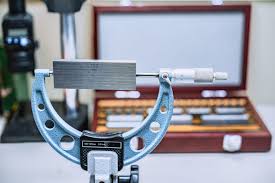
Scale calibration services are essential for ensuring the accuracy of weighing equipment in various industries such as pharmaceutical, food, manufacturing, and laboratory settings. These services involve the comparison of a device's measurement accuracy against a standard or traceable reference, and adjustments are made as necessary to ensure the equipment is functioning within acceptable tolerances. During the calibration process, technicians use precision weights and other calibration equipment to test the accuracy of the scale across its full range of measurements. Any deviations from the reference standards are documented, and adjustments are made instrument calibration solutions as needed to bring the scale back into compliance. Regular calibration of weighing scales is crucial for maintaining product quality, regulatory compliance, and operational efficiency. Many industries are required to adhere to strict quality and safety standards, and accurate weighing is a critical aspect of compliance. Choosing a reputable calibration service provider is essential to ensure that the calibration is performed accurately and in accordance with industry standards. A reliable calibration service provider will offer on-site or off-site calibration services, provide calibration certificates, and maintain a record of calibration for each piece of equipment. Ultimately, scale calibration services are a critical component of quality assurance and regulatory compliance in various industries, and businesses must prioritize the calibration of their weighing equipment to maintain accuracy and reliability.
Importance of Regular Scale Calibration Services
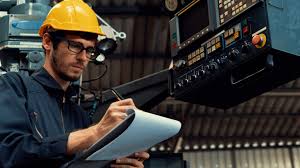
Regular scale calibration services are crucial for ensuring accuracy and precision in measurements. Over time, scales can become inaccurate due to wear and tear, environmental conditions, and other factors. Regular calibration helps to detect and correct any deviations, ensuring that measurements are reliable and consistent. This is particularly important in industries such as manufacturing, pharmaceuticals, and food production, where precise measurements are critical for quality control and regulatory compliance. By investing in regular scale calibration services, businesses can maintain confidence in their measurements and avoid potential errors and costly rework. Additionally, regular calibration can extend the lifespan of scales and minimize the risk of breakdowns or malfunctions. Overall, the importance of regular scale calibration services cannot be overstated for ensuring accuracy, reliability, and compliance in various industries.
How to Choose the Right Scale Calibration Services Provider
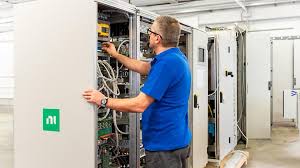
When choosing the right scale calibration services provider, it is important to consider their experience and expertise in the industry. Look for a provider that has a proven track record of delivering accurate and reliable calibration services for a range of different types of scales. Additionally, it is important to consider the accreditation and certifications of the calibration services provider. Look for a provider that is accredited by a recognized organization, such as the National Institute of Standards and Technology (NIST), and holds relevant certifications in calibration processes and procedures. It is also important to consider the turnaround time for calibration services. Look for a provider that can offer quick and efficient calibration services to minimize downtime for your operations. Finally, consider the cost of calibration services and ensure that the provider offers transparent pricing and clear communication throughout the calibration process. By considering these factors, you can choose the right scale calibration services provider to meet your specific needs and requirements.
The Benefits of Professional Scale Calibration Services
What is calibration in chemistry
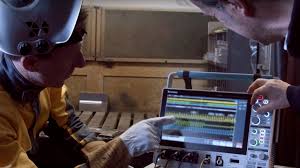
Professional scale calibration services offer numerous benefits to businesses in various industries. One of the main advantages is the assurance of accuracy in weight measurements, which is critical for meeting regulatory requirements and maintaining product quality standards. By regularly calibrating scales, businesses can avoid costly errors in manufacturing, packaging, and shipping processes. Additionally, professional scale calibration services can help in optimizing operational efficiency by ensuring that scales are functioning at their optimum performance levels. This can lead to improved productivity and reduced waste, as well as helping businesses to meet their production targets. Furthermore, regular scale calibration can also extend the lifespan of scales and reduce the risk of equipment breakdowns. This can result in cost savings for businesses by reducing the need for repairs and replacements. Ultimately, by investing in professional scale calibration services, businesses can benefit from improved accuracy, increased efficiency, and a reduced likelihood of costly equipment failures.
Common FAQs About Scale Calibration Services Answered
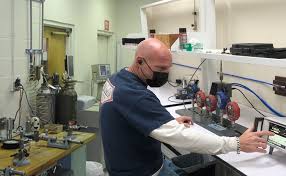
Here are some common FAQs about scale calibration services answered: 1. Why is scale calibration important? Regular calibration ensures that the scale is providing accurate and reliable measurements, which is essential for various industries such as pharmaceuticals, food and beverage, and manufacturing. 2. How often should scales be calibrated? The frequency of calibration depends on the specific requirements of the industry and the scale usage. However, it is generally recommended to calibrate scales annually or semi-annually to maintain accuracy. 3. What are the benefits of hiring a professional calibration service? Professional calibration services have the expertise, equipment, and traceability to ensure accurate and reliable calibration results. They can also provide documentation for compliance with industry standards and regulations. 4. Can I calibrate my scales in-house? While some businesses may have the capabilities to perform in-house calibrations, it is often more cost-effective and accurate to hire a professional calibration service. This also ensures that the calibration meets national and international standards. 5. What should I look for in a calibration service provider? When selecting a calibration service provider, it is important to consider their accreditation, expertise in calibrating specific types of scales, turnaround time, and customer service. It is also important to ensure that they can provide calibration certificates and documentation for compliance purposes.
A Step-by-Step Guide to Understanding Scale Calibration Services
A Step-by-Step Guide to Understanding Scale Calibration Services includes detailed information on the importance of scale calibration, the process of scale calibration, and the different types of scales that require calibration. The guide also outlines the benefits of professional scale calibration services and how to choose the right calibration provider. Additionally, it provides insights into the certification and standards involved in scale calibration, as well as tips for maintaining the accuracy of calibrated scales.
Understanding the Different Types of Scale Calibration Services
Understanding the different types of scale calibration services is essential for ensuring accurate measurements in various industries. There are several types of scale calibration services, including on-site calibration, in-house calibration, and accredited calibration. On-site calibration involves a technician coming to the location of the scales to perform the calibration, which is convenient for industries with large or immobile scales. In-house calibration involves sending the scales to a calibration lab for servicing. Accredited calibration is performed by a calibration provider that has been certified by an accreditation body, ensuring that the calibration meets specific industry standards. Each type of calibration service has its own benefits and considerations, and understanding the differences between them can help industries choose the right option for their needs.
Top Factors to Consider When Selecting Scale Calibration Services
1. Accreditation: Look for scale calibration services that are accredited by a recognized organization such as ISO/IEC 17025. This ensures that the service provider meets specific requirements for competence and impartiality. 2. Experience: Consider the experience and expertise of the calibration technicians. A company with a long-standing reputation in the industry is more likely to provide reliable and accurate calibration services. 3. Equipment and Standards: Ensure that the calibration service provider uses state-of-the-art equipment and adheres to industry standards for calibration procedures. This will guarantee the accuracy and reliability of the calibration service. 4. Turnaround Time: Consider the turnaround time for calibration services, especially if your business relies heavily on the use of scales. Look for a service provider that offers quick and efficient calibration without compromising quality. 5. Cost: While cost should not be the sole determining factor, it is still important to consider the pricing of calibration services. Compare quotes from different providers and choose one that offers a reasonable price without sacrificing quality. 6. Calibration Certificates: Verify that the calibration service provider issues comprehensive and detailed calibration certificates that comply with industry standards. These certificates are essential for demonstrating compliance during audits or inspections. 7. Customer Support: Choose a calibration service provider that offers excellent customer support and is responsive to any queries or concerns regarding the calibration process. 8. Range of Services: Consider the range of scales and balances that the calibration service provider can calibrate. Ideally, you want a provider that can accommodate the full range of scales used in your operations. 9. Reputation: Research and look for reviews, testimonials, or recommendations from other customers to gauge the reputation and reliability of the calibration service provider. 10. Location and Accessibility: Consider the location of the calibration service provider and how accessible their services are to your business. Choose a provider that is convenient and easy to work with.
The Ultimate Checklist for Quality Scale Calibration Services
The Ultimate Checklist for Quality Scale Calibration Services includes a comprehensive list of steps and considerations for ensuring that scale calibration services meet the highest standards. This checklist covers important factors such as verifying the accreditation of the calibration provider, checking the calibration equipment for accuracy and reliability, and confirming that the calibration process adheres to industry standards and regulations. Additionally, the checklist outlines the importance of documenting and maintaining calibration records, as well as regularly scheduled calibration intervals to ensure ongoing accuracy and performance of the scales. Following this checklist can help businesses and organizations ensure that their scales are properly calibrated and provide accurate measurements for their operations.
Key Advantages of Outsourcing Scale Calibration Services<
electronic test equipment calibration services/h2>
Outsourcing scale calibration services offers several key advantages for businesses. Firstly, it allows companies to access specialized expertise and equipment, ensuring that their scales are accurately calibrated to meet industry standards. This can result in improved product quality and reduced risk of non-compliance with regulations. Additionally, outsourcing scale calibration can save time and resources for businesses, as they do not need to invest in the necessary training, equipment, and personnel to perform the calibrations in-house. This allows companies to focus on their core business activities and allocate their resources more efficiently. Outsourcing also provides flexibility and scalability, as companies can easily arrange for the calibration of multiple scales or equipment at different locations. Furthermore, outsourcing scale calibration services can help businesses reduce the likelihood of recalls, safeguarding their reputation and minimizing potential financial losses. Overall, outsourcing scale calibration services can be a cost-effective and strategic decision for businesses looking to maintain accuracy and compliance in their weighing and measurement processes.